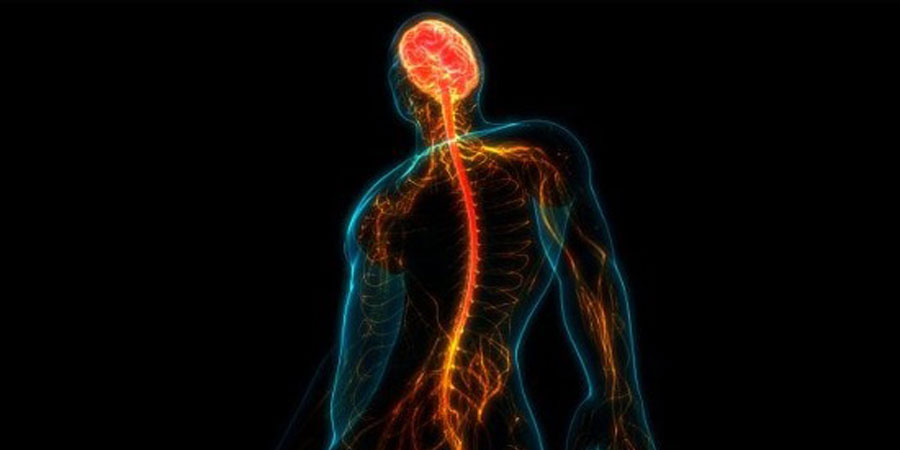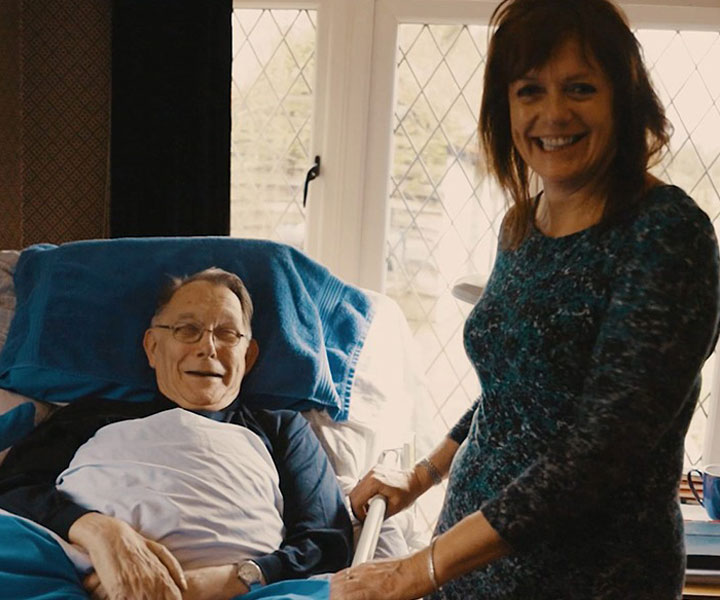Supporting our clients with a spinal injury

What is a spinal injury?
A spinal cord injury is damage to the spinal cord. It’s an extremely serious type of physical trauma that’s likely to have a lasting and significant impact on most aspects of daily life.
The spinal cord is a bundle of nerves and other tissue that the vertebrae of the spine contains and protects. The vertebrae are the bones stacked on top of each other that make up the spine.
The spine contains many nerves, and extends from the brain’s base down the back, ending close to the buttocks. The spinal cord is responsible for sending messages from the brain to all parts of the body. It also sends messages from the body to the brain.
If the spinal cord sustains an injury, some or all of these impulses may not be able to “get through.” The injury may be classed as complete or incomplete. The result is a partial or complete of sensation and mobility below the injury. A spinal cord injury closer to the neck will typically cause paralysis throughout a larger part of the body than one in the lower back area.
There are approximately 2,500 new cases of Spinal Cord Injury from trauma in the UK each year and the number of people living with a spinal injury in the UK is approximately 50,000.
what is spinal injury live-in care?
Live-in care for individuals with spinal injuries offers support in enhancing daily life, restoring independence, and managing daily activities. This care is typically provided by an experienced agency or specialised provider knowledgeable in spinal injury care.
Spinal cord injuries of any kind may result in one or more of the following signs and symptoms:
- Loss of movement
- Loss or altered sensation, including the ability to feel heat, cold and touch
- Loss of bowel or bladder control
- Exaggerated reflex activities or spasms
- Changes in sexual function, sexual sensitivity and fertility
- Pain or an intense stinging sensation caused by damage to the nerve fibres in your spinal cord
- Difficulty breathing, coughing or clearing secretions from your lungs
- In many cases after a spinal cord injury, individuals will require support and should be provided with choice about the type of care they receive whether that is in a care home, residential or live-in care.
In many cases individuals are unaware of live-in care. Receiving compassionate care in the safety and familiarity of your own home following a spinal cord injury has far reaching benefits, in terms of improving wellbeing, overall health and quality of life.
At Eximius we can help by providing highly trained companions to ensure clients can continue living in their own home, surrounded by loved ones.
We take a flexible and personalised approach to care helping ensure clients retain choice, control in life, and maintain as much independence as possible. Companions at Eximius go above and beyond to ensure clients and families are satisfied.
How our companions can help
Managing and administering medications
Medications may be used to manage some of the effects of spinal cord injury. These include medications to control pain and muscle spasticity, as well as medications that can improve bladder control, bowel control and sexual functioning.

All companions at Eximius are fully trained and qualified in the administration of medication. We ensure that companions understand and are aware of the client’s medication usage before they go into placement. This helps ensure a smooth and accurate handover.
Additionally, companions are required to document the administration of medication on a secure care electronic system. This helps companions monitor intake and let a client’s family know that their loved one is being looked after.
This can be extremely reassuring. Companions will also ensure that repeat prescriptions are made and will collect medication from the pharmacy. This takes all pressure off the client’s family.
Personal care
Often individuals with a spinal cord injury have reduced mobility and are unable to carry out personal care themselves. Companions at Eximius can help assist clients with personal hygiene. We understand that this can be a sensitive matter and ensure that the client’s dignity is respected whilst helping with personal care.
Help them stay socially active
Our companions can help keep spinal injury clients stimulated by ensuring they keep in touch with friends, remain active and attend activities they enjoy and love. This is good for a client’s confidence, mental wellbeing and helps ensure they remain connected to the local community. Companions can also escort clients on daytrips to museums, concerts and on holiday. This helps ensure that our clients experience a quality life that they deserve.
Additionally, companion’s at Eximius can play a vital role in ensuring clients carry out exercise. Activity is the best way to keep a client’s body healthy, improve mental health and to avoid complications.
Research has demonstrated the benefits of activity in maintaining health and function as well as recovery. Companions at Eximius can help clients perform a range of motion exercises to help keep joints supple and assist with bowel, bladder, and skin care.
Movement of the legs and trunk keep the bowels moving and the urine in the bladder stirred, thereby reducing the client’s chances of infection. Moving the body by performing pressure releases, keeps small blood vessels from collapsing or clotting.
Help with domestic tasks
Companions at Eximius are required to keep a client’s house clean. All rooms are regularly cleaned and vacuumed ensuring that the upkeep of the house is kept to a high standard. This can be reassuring to a client’s family knowing that their relative is in a safe and tidy environment.
Help care for the client’s much-loved pet
Companions at Eximius will happily support looking after client’s pets by feeding them and taking them on regular walks.
Eating and drinking
At Eximius companions help with the client’s food shopping and cook healthy well-balanced meals. Meal choices can be prepared based on the client’s desires and preferences. This ensures that the client regularly eats/drinks and receives essential vitamins. This is important in remaining healthy and keeping their immune systems strong, which is helpful in fighting illness. Each companion is provided with an Eximius recipe book when going into a placement. The recipe book is filled with tasty healthy meals, which help ensure clients receive a range of delicious meals.
Companionship
Individuals with a spinal cord injury can become frustrated, depressed and their mental wellbeing can deteriorate. Companions at Eximius can provide excellent emotional support and assistance during this difficult period. Our companions are carefully selected by our recruitment manager, ensuring that all companions employed by the company are of an outstanding care standard. Companions are perfectly matched to a client to ensure they share similar interests and hobbies. This enables a client to continue living an interesting and stimulating life.
Safe mobility
An individual’s house often has to be adapted to help ensure safe movement and mobility. Companions at Eximius ensure that a client’s house is the perfect fit for them. They will contact an occupational therapist who will provide expert guidance and advice on what equipment and adaptations are required. These are then fitted into a client’s house, hassle free.
Furthermore, collaborative health and social care is essential and people with a spinal cord condition will often need the expert professional help of a multidisciplinary team. The multidisciplinary team can include a person’s specialist, physiotherapist, and occupational therapist.
Eximius play an important role in ensuring this is organised, appointments are scheduled, and doctors are attended on time. This takes all the pressure away from the client’s family and enables them to continue living a life, knowing their loved one is receiving a high standard of care.
Reasons to choose Eximius
Experience
Eximius have specialised in clients with spinal injuries since we started. We understand not only the physical concerns but also the emotional impact from a spinal injury. We have a team of carers who have extensive experience in this area and are able to support our clients and their needs. We also have a clinical lead and connections with The Spinal Injury Association (SIA) for specific requirements.
Training
Our carers are trained in all aspects of care for spinal injuries, including bowel management, AD, respiratory care and tissue viability. We use external trainers from Stoke Mandeville hospital and have our own bespoke internal training.
Consistency
We like to ensure the same carers are assigned to a client and always aim to have one primary carer. This helps to build trust and knowledge of a client’s needs.
Choosing the right care is an important decision and our experienced team are here to help every step of the way. Please do not hesitate to get in touch, we are more than happy to help.